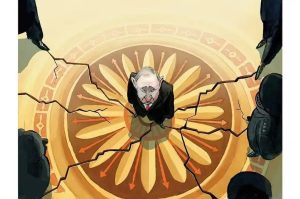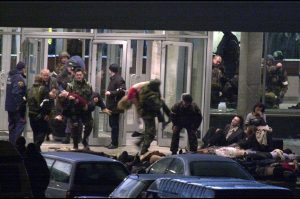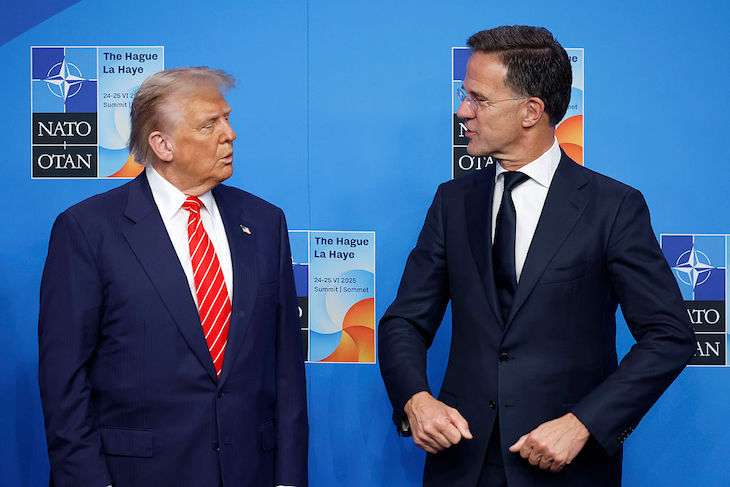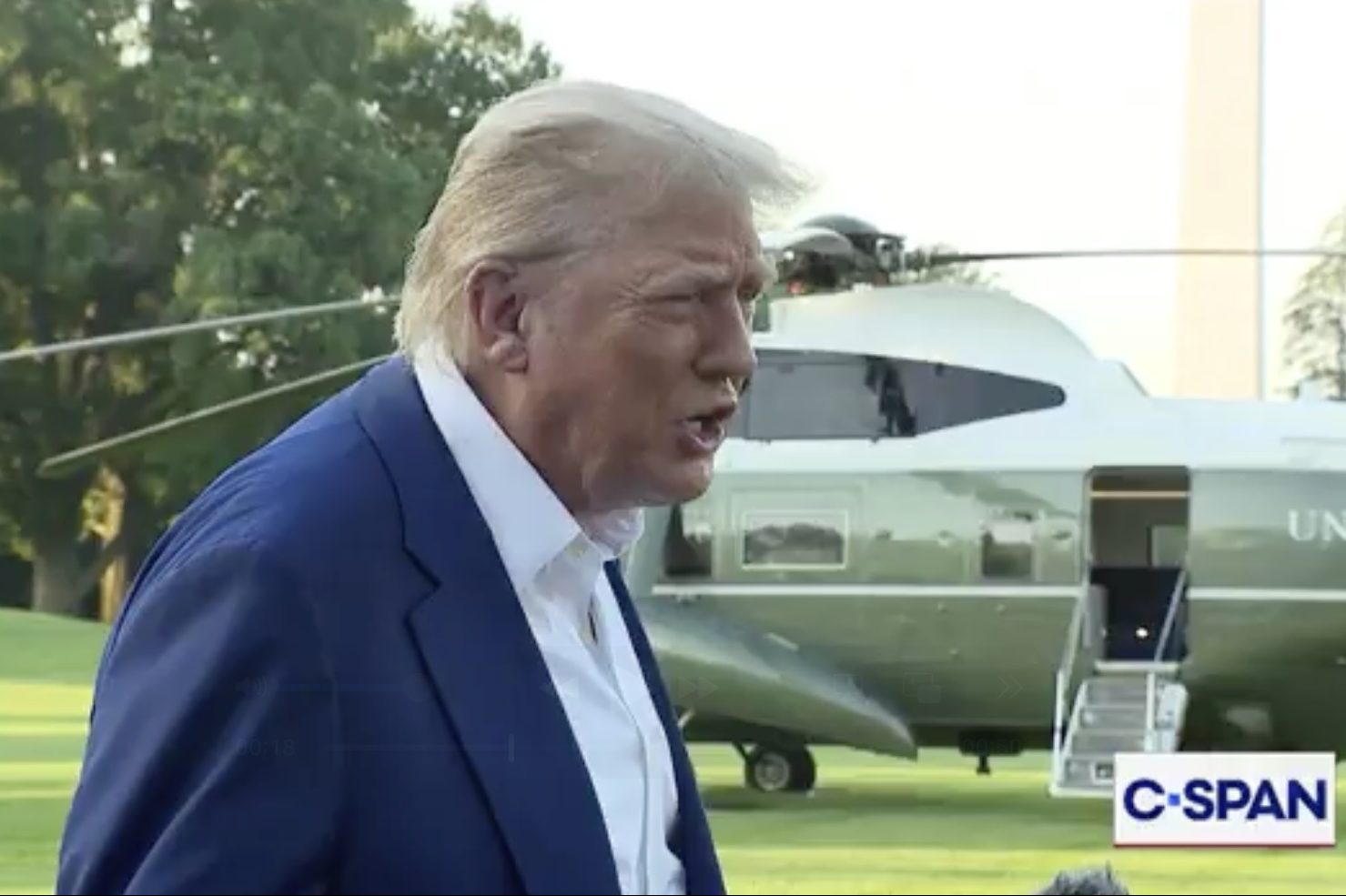The death of Alexei Navalny has dramatically increased the risk for other key figures currently imprisoned by Vladimir Putin, whether for reasons of dissident behavior, protest against the war in Ukraine or supposed suspicion of espionage. The fact that Putin would cross this line, and do so with impunity in the midst of both the Munich Security Conference and a western influence push spearheaded by willing patsy Tucker Carlson, is a sign that we are now in a new reality — one that it is the duty of the next administration to irrevocably reverse.
In the past, when the United States’s top officials identified an American citizen or important dissident held in another nation and said “do not touch this person, lest you find out what terror awaits you,” it meant something. This has been true for a very long time, and was of particular importance during the Cold War. The nations of the world could assume that when they dealt with an American, they dealt with a Made Man — that the protections of our nation traveled with them, and the consequences for killing an American would be swift and terrible.
As Matthew Kroenig and Dan Negrea write in their new book, We Win, They Lose: Republican Foreign Policy and the New Cold War, which I review in the next issue of The Spectator:
On April 5, 1986, terrorists bombed a nightclub in Berlin, known to be frequented by Americans, killing two US soldiers and wounding hundreds of others. On April 14, Reagan responded with more than one hundred US aircraft conducting strikes on Libyan military facilities and command centers, including Qaddafi’s personal headquarters, killing his daughter Hana. As Reagan explained, “When our citizens are attacked or abused anywhere in the world on the direct orders of hostile regimes, we will respond so long as I’m in this office.”
Perhaps it’s the muscle memory of this standard of presidential leadership that caught even the most famous televised Russian experts unaware of the potential for Putin to have a prominent opponent murdered — which, let’s be clear, is absolutely what happened in this circumstance. (Don’t be naïve.) As the New York Times reported over the weekend:
The fact that Russia did not keep Mr. Navalny alive surprised Mr. McFaul, a longtime Russia expert who teaches at Stanford University. He said he did not expect it, even given the regime’s previous attempt to poison him. Others said it signified a new world, in which even dissident figures with a global profile were easily killed…
Such figures often had an air of inviolability. But these days, governments behave with more impunity, in part, analysts say, because the United States and other Western countries, burdened by their own political struggles, no longer present the united front of pressure they did in the 1970s and 1980s.
“It’s a marker that tells us how the world has changed,” said Philippe Sands, a British human rights lawyer and writer. “Governments used to let these kinds of individuals live. Sometimes they’d lock them away for many years, but they didn’t knock them off. Now they just do away with them.”
“The countries that are doing this,” Mr. Sands added, “are more confident of their ability to do this.”
“This” meaning murder the opponents of their regime to send a message. Americans are almost certainly familiar by now with Evan Gershkovich and Alsu Kurmasheva, both citizens. Vladimir Kara-Murza — whose wife and children are American citizens — is currently being held in a Siberian “special regime prison colony” in Omsk, for the crime of speaking out against Putin and the war in Ukraine before an American audience at the Arizona State House in 2022. He has spent most of his time there in solitary confinement, as his wife Evgenia related to NPR yesterday:
The end of last year in December, Vladimir was allowed a fifteen-minute phone call. And that was the first phone call in over half a year. And we have three kids. So if you divide fifteen minutes by three, it means that, you know, every — our kids had five minutes each. And I was literally standing there with a timer because I could not let one kid to speak to his father longer than for five minutes. And, of course, I did not speak to Vladimir myself because I didn’t want to take that time away from the kids. I have not spoken to my husband since last summer.
As I noted in reaction to Navalny’s death, an opinion shared by Sam Greene in the National Interest and Hugh Hewitt at Fox News, with Navalny gone, Kara-Murza becomes all the more prominent as a potential target for Putin’s wrath.
So what is America to do about such a state of affairs? Well, it’s time to reconsider the argument, more than a decade ago, advanced by the Foundation for the Defense of Democracies’ Cliff May: The Marilyn Monroe Doctrine.
In 1957, Marilyn Monroe starred in The Prince and the Showgirl. In the movie’s most memorable scene, Monroe (as Elsie Marina, an understudy in The Coconut Girl in 1911 London who is soon hobnobbing with the royals) overhears a telephone conversation (in German — but Elsie is from Milwaukee so she’s bilingual as well as gorgeous) about a plot against the Prince Regent of Carpathia, played by Laurence Olivier.
“It is most unfortunate that you should have heard that,” the dastardly Balkan plotter snarls. “It might prove exceedingly dangerous for you!”
“Dangerous?” scoffs Elsie. “Oh, don’t give me that. I’m an American citizen. Nobody can do anything to me!”
The aim is to reestablish such an assumption in the minds of America’s foes and Americans themselves. There are numerous steps that can be taken to achieve such an end, none of which involve the use of significant taxpayer funds. The punishment for nations that reach out to touch the people we declare must be left free of abuse is to experience what happens when they cross that line. Financial punishment is the most direct — the real seizure and deployment of $300 billion in Russian funds that are currently frozen is step one. The delivery of long-range strike weapons, the sanctioning of commodities enjoyed by the Russian ruling class, revoking the visas of their wealthy children still partying in the west — all these are viable steps.
America should make clear it is ready and willing to punish Russia by having some of its own most beloved murderers turn up suspiciously dead within its borders should they cross the line again. This is not escalation, it is a reasoned and serious response. There is no deterrence without such severity. And this administration or the next must understand that for Americans to have confidence once again that the protection of our flag travels with them wherever they go.


























Leave a Reply